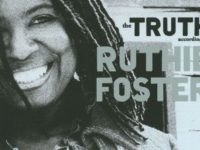Hey, it’s been a while since we’ve last done a “Quickies”; time to play catch up.
This go around includes a couple of new releases by some Brit rockers from the sixties and seventies showing they still have what it takes. Since their names don’t end with “Clapton,” “Page,” “McCartney” or even “Davies,” their fresh new records have evaded the notice of most of the rock listening public, but deserve at least a tryout.
The other two artists are relative newcomers, and because their music is off the mainstream, they’ll never gain wide notice. That comes with the territory of being a niche player, but if it happens to be in your niche, these records could be a treat for you.
Without further delay, here are some offerings by musicians both old and new:
Jack Bruce/Robin Trower Seven Moons
Is there still a place in this world for vintage-sounding psychedelic blues-rock? Jack Bruce seems to think so. Wanting to keep the good power trio vibe he got from Cream’s one-off performance at the Royal Albert Hall in 2005, he dialed up old friend Robin Trower to revive that spirit on a full studio album.
It’s just as much a revival of another sort: Bruce and the former Procol Harum guitar god banned together for a couple of albums of the same vein in the early eighties. Gary Husband fills in the drum chair this time and mostly stays out of the way, but that’s OK; this isn’t his show, anyhow. There’s nothing in this collection that goes over the top like either guys did in their heyday, but the sound of that time is faithfully followed and there’s plenty enough chops on display to convince you they can still perform.
They rip through their eleven, riff-heavy fresh cuts—all co-written by the two–in mostly slow-to-medium tempo without extended jamming. That’s probably best left for the live shows, anyway. Most of the target audience may not have the stamina for ten minute Hendrixian solos anymore. Bruce’s voice is still in decent shape, too. “Lives Of Clay” does provide a nice, five minute Cream fix and “The Last Door,” one of the few uptempo tracks on here, is another highlight.
Amos Hoffman Evolution
Like Sam Barsh, whose new release I covered earlier this week, Israeli Amos Hoffman is yet another talent from the Avishai Cohen orbit. It was his brooding oud that caught my attention on Cohen’s “Nu Nu” a couple of years ago. Hoffman is now getting ready to release Evolution, his third album overall, but his first for Cohen’s Razdaz label. Cohen is also on board to lend his double-bass skills to the recordings.
Oud players don’t get a lot of airings stateside, but I suspect they are as common in the Middle East as guitars are here. Lebanese-born Rabih Abou-Khalil is perhaps among th best-known out of those who use it to play world fusion. In contrast to Abou-Khalil’s jazz leanings, Hoffman’s Evolution nods to bop are more subtle and sticks to presenting music that’s overwhelmingly Middle-Eastern. An exception is multi-faceted “Hamsa” incorporates his jazz and other influences more earnestly than elsewhere. Hoffman also adds some tasteful electric guitar to the song. “I Met You” is the lone vocal, provided by Cohen, in Hebrew (I think).
Evolution is scheduled for release March 25.
Ruthie Foster The Phenomenal Ruthie Foster
Gause, Texas native Ruthie Foster’s fifth album came out about a year ago, and it’s a gem. She carries over her well-honed skills in blues, folk and gospel and injects a little soul in it. With a mix like that, it was only natural that Eric Bibb would ask her to come co-sing on a track from his latest offering Get OnBoard, which I profiled here recently.
The Phenomenal pays homage to the blues and spirituals of the past (“People Grinnin’ In Your Face, “Up Above My Head”), while her own offerings like the carefree “Beaver Creek Blues” sit comfortably beside them. Her take on Lucinda Williams’ “Fruits Of My Labor” is simply sublime. Bibb’s own “A Friend Like You” is also covered. “Cuz I’m Here” is a warm, soothing slice of jazzy soul that Foster gently wraps her Aretha-like pipes around. Perfectly produced by none other than my homie Malcolm Welbourne, a.k.a. the irrepressible Papa Mali, there might be fault with this release, but I haven’t found it yet.
Kevin Ayers Unfairground
The last time we chatted about Ayers it was to opine about an early Soft Machine live document from 1967. But the bassist/guitarist/singer went solo right after their 1968 debut album and quickly established himself as a kinder, gentler version of another founding leader of a groundbreaking British rock band: Syd Barrett. Ayers the solo artist eschewed much of the prog pretensions of his former band while retaining all the folky, psychedelic charm.
Despite not being active in the music business since the turn of the millennium, Ayers has lost none of his penchant for the catchy melodies, imaginative yet unadorned arrangements and his relaxed wit. In those ways, he’s a lot like his old Softs cohort Robert Wyatt, who appears with a backing vocal on one track. One listen to Unfairground can make any listener understand that Ayers is still the boss of that baroque, often wistful style of pop. Sufjan Stevens can step aside, now; the Original is back.
“Quickies” are mini-record reviews of new or upcoming releases, or “new to me.” Some albums are just that much more fun to listen to than to write about.



